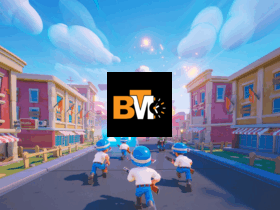In the rapidly evolving landscape of coworking spaces, businesses and freelancers alike are continually seeking ways to foster creativity, improve collaboration, and enhance team dynamics. While coworking spaces were originally designed to provide flexible work environments and reduce the isolation of remote work, they have increasingly evolved to offer more than just a place to work.
One of the most exciting trends in coworking spaces today is the integration of gaming room software—an innovative approach to improving team dynamics, productivity, and overall employee satisfaction.
But how exactly does gaming room software fit into the coworking space ecosystem, and why is it becoming such a significant asset in today’s collaborative work environments? Let’s dive deeper into this concept and explore the numerous benefits it brings to teams working in coworking spaces.
Understanding Gaming Room Software in Coworking Spaces
Gaming room software in coworking spaces refers to a suite of digital tools, platforms, and systems that facilitate interactive gaming experiences within a shared workspace environment. This software can include everything from video games to collaborative online platforms designed for team-building activities, virtual competitions, or even casual gameplay designed to break the ice and foster social interaction.
For coworking spaces, these gaming rooms are designed to offer a unique way for teams and individuals to step away from the usual workday routine and engage in experiences that promote fun, creativity, and team collaboration. These gaming setups are often equipped with high-performance gaming consoles, PCs, and networked systems that allow teams to connect and collaborate in an immersive, playful environment.
Promoting Team Building and Collaboration
One of the most prominent benefits of gaming room software in coworking spaces is its ability to enhance team building and collaboration. In traditional work settings, team-building activities are often structured, planned, and sometimes forced. They may involve icebreaker games, off-site activities, or even corporate retreats. While effective, these activities can feel contrived or disconnected from day-to-day work.
Gaming room software in coworking spaces, on the other hand, offers a more organic, spontaneous approach to team building. Multiplayer games and team-based challenges encourage employees and coworkers to work together in ways that mimic real-world problem-solving, creativity, and communication.
By engaging in virtual challenges or interactive games, individuals can improve their ability to collaborate, share ideas, and communicate in high-pressure situations—all in a relaxed, low-stakes environment.
For example, playing strategy games or multiplayer sports games within a coworking space can create moments of natural teamwork. Players must make quick decisions, share ideas, and adjust their strategies based on evolving circumstances. These types of activities mirror the challenges teams face in real-world projects and help foster a stronger sense of camaraderie and collective problem-solving.
Enhancing Creativity and Innovation
Another compelling reason coworking spaces are integrating gaming room software is its ability to stimulate creativity and innovation. Creativity often thrives in environments where people can escape the rigidity of traditional work setups. By offering a gaming room that combines fun with interactive experiences, coworking spaces provide individuals and teams with an opportunity to break free from the constraints of typical work routines and explore new ways of thinking.
When teams engage in gaming sessions, they are often required to think on their feet, adapt to new situations, and overcome unexpected challenges. These types of cognitive exercises can have a lasting impact on a person’s problem-solving ability, creativity, and overall innovation in the workplace. For coworking members, this means that gaming room software could become a catalyst for breakthrough ideas and new approaches to tackling work challenges.
Additionally, casual gaming breaks or collaborative gaming sessions can also help employees recharge. These moments of relaxation can provide mental clarity, leading to renewed energy and a fresh perspective when they return to their tasks. Studies show that short breaks or moments of play can significantly reduce stress and improve overall productivity.
Fostering Social Interaction and Networking
In coworking spaces, where professionals from diverse industries, backgrounds, and expertise gather, social interaction and networking are key to success. While some coworking spaces offer networking events, mixers, or communal kitchens to encourage interactions, the social atmosphere can sometimes feel forced or transactional.
Gaming room software provides a unique, non-competitive space where individuals can meet and bond over shared interests. Whether it’s a casual game of trivia, a team-based virtual challenge, or a competitive eSports tournament, the gaming room fosters an environment where people can interact in a natural, enjoyable setting.
For introverts or those who might feel uncomfortable attending formal networking events, gaming offers a low-pressure, accessible avenue for forming connections. The shared experience of playing a game, solving puzzles, or even celebrating a victory can forge strong social bonds, leading to potential collaborations and even friendships outside of the gaming room.
Moreover, in larger coworking spaces that serve a broad community of remote workers, freelancers, and business professionals, gaming room software can create common ground where individuals from different industries can connect in a way that wouldn’t otherwise be possible. This social interaction often leads to creative partnerships, collaborations, and business ventures, fostering a more vibrant, dynamic coworking environment.
Improving Mental Well-Being and Work-Life Balance
Mental well-being is a growing concern for many in the modern workforce. The rise of remote work and the blurred lines between work and personal life have contributed to increased stress and burnout among employees. Gaming room software in coworking spaces offers a solution to this problem by providing a healthy outlet for stress relief and relaxation.
Engaging in light gaming sessions can help individuals relax, laugh, and recharge their minds, reducing feelings of burnout. For coworking members, this means they can maintain a healthy work-life balance by taking breaks and using the gaming room as a way to refresh and reset during the day.
This contributes not only to improved mental health but also better productivity, as employees return to their tasks feeling rejuvenated and ready to tackle challenges with a fresh perspective.
Conclusion
Incorporating gaming room software into coworking spaces is an innovative and effective way to enhance team dynamics, collaboration, and creativity. By offering a space for relaxation, social interaction, and problem-solving through gaming, coworking spaces are fostering environments where professionals can grow both individually and as part of a team.
Whether for team building, networking, or simply taking a break from the daily grind, gaming room software provides numerous benefits that contribute to a positive and productive coworking experience. As coworking spaces continue to evolve, integrating fun, creative, and interactive solutions like gaming will only become more essential in driving success and innovation in the modern workspace.







Leave a Reply